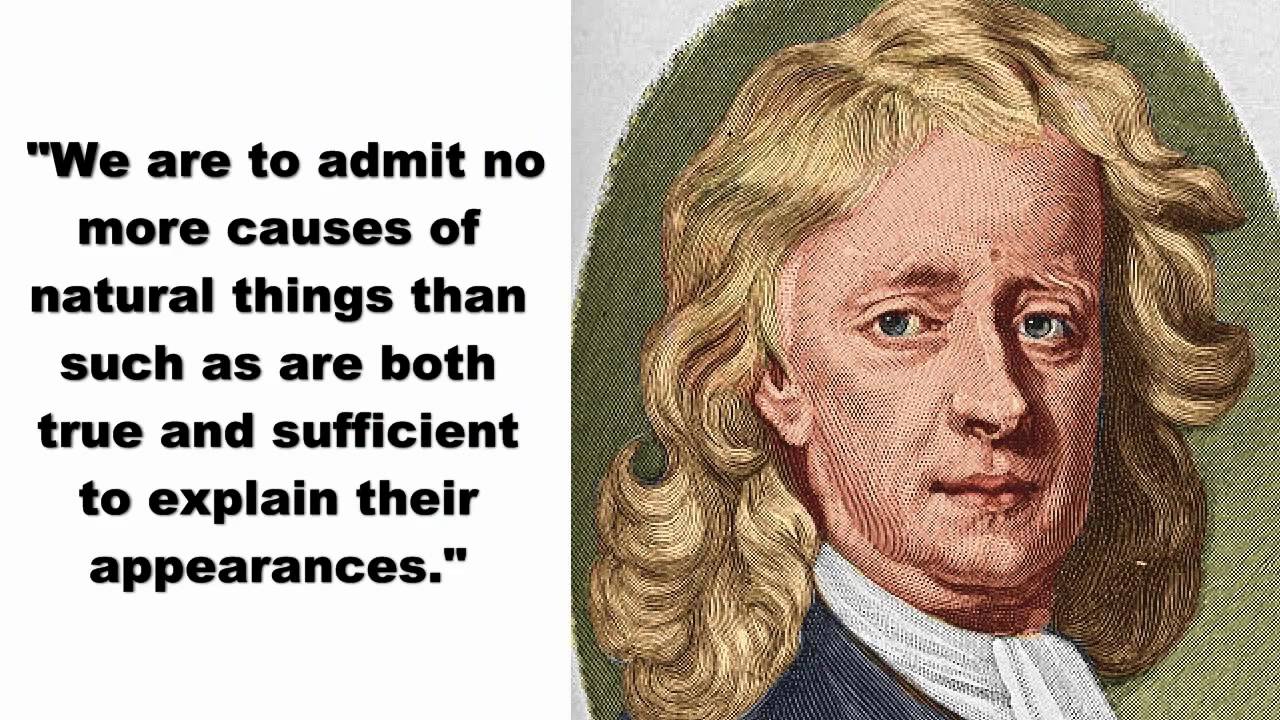Good, and you should!
But the response to whether or not he (He) exists is no, based upon Occam, because his non-existence is simpler than his (His) existence?
Many of their answers might surprise you. Life Transforming events include loss of a loved one, spouse, parent, child. Loss of one’s career, even loss of 100 lbs, are life transforming events. I have found that for most people when a traumatic event takes place, they either get depressed and say how unfair life is or get on with life in a vastly more meaningful way.
No, that doesn’t follow. You understand neither my point nor Occam’s. Occam suggests to choose the simplest explanation that adequately explains the data, not the simplest explanation, period. If God is necessary to explain the data, we are forced to postulate (or even conclude) God. Otherwise, not so much.
The question was about what’s simpler; we haven’t got to whether the simplest explanation is adequate.
One of the evidences for God is historical evidence for certain miracles - such as the resurrection of Jesus - happening here on Earth. Isn’t the Earth part of the universe? Additionally, philosophical arguments for God are also at least partially based on what we see in the universe. Some, such as the fine-tuning argument, argue based on scientific evidence, although they are not scientific arguments per se. Other arguments, such as the Aristotelian argument for the existence of God, are based on metaphysical principles which we observe working in the world around us, which is also part of the universe. This is what I meant.
My point is that your statement that “people only believe in God because they have already decided to do so” is a vacuous statement. People decide to believe things based on a lot of reasons, some rational, some not. That applies to belief in God, scientific theories, political ideals, and so on. I don’t think belief in God is very special in this regard.
My point is that most people think there is some sort of convincing evidence that God exists. Based on sociological data alone you cannot simply dismiss the evidence for God as if it doesn’t exist. You can dispute the evidence, but you can’t claim without further justification that not believing in God makes better sense of the data when most people disagree with you. That being said, this is a peripheral point.
Occam suggests choosing the simplest explanation that adequately explains the data.
But we haven’t yet gotten to whether the simplest explanation is adequate?
That seems circular to me, and my comments did not follow. It seems as though you are granting yourself more grace in this conversation than you are granting to me.
I’m certain that I’m not following you here.
Yes, but scripture isn’t what we usually mean by “observation of the universe”. You weren’t being very clear.
Why aren’t they?
We observe metaphysical principles working? What do you mean by that?
I said no such thing.
I’m not sure most people believe there is evidence; I think many people believe out of habit or early indoctrination and don’t think about evidence at all, and other people believe through faith, not evidence. And I’m sorry, but that people believe something is not a good reason for thinking that their belief makes sense. I would imagine that most people in the world believe in some sort of magic too, whether astrology, chi, voodoo, or whatever. Is that a good reason not to dismiss magic?
Yes, I’m certain too. But I don’t know what the problem is.
Is that purposefully rude or just an unintentional consequence of your thoughts?
Neither, I think. It’s an assessment of the situation: I don’t know why or what you aren’t understanding here.
I believe the point, which seems to have been lost, is that in appealing to Occam you don’t understand what it is that you are appealing to.
“Plurality must never be posited without necessity”
Of course, if the plurality is necessary, then it’s not excluded simply because it would be “simpler” to leave it out.
You either haven’t been reading or you failed to read for comprehension. I have made that point several times.
So what, precisely, did your “appeal to Occam” consist of? At this point it appears to be an empty gesture towards nothing whatsoever of any substance. Did I likewise miss where you made that point?
Oh, yes. I can only advise you to read more of the thread.
How about we just “cut to the chase.”
What, if anything, does this have to do with Occam? Do you agree that it has nothing at all to do with Occam?
It refers to Occam’s idea of simplicity and complexity. The discussion is over what is simpler or more complex, not over what is adequate. You could have found that out by reading.
You are right that positing a universe and a God is one more entity compared to just positing a universe. In that sense it is more complex. However, the number of entities is not only what’s relevant into determining whether which worldview is (needlessly) more complex. Similar to the issue of dark matter, what I care about is what is the best explanation. If the naturalistic worldview is positing only a universe but one that pops into existence from nothing, then I think it is more improbable (or “complex”) than the theistic worldview where a Creator God creates and sustains the universe.
So far, the only question has been what’s more complex. We could get into the “needlessly” part if you want, but that’s a change of subject.
Why? I have never been able to figure out why God gets a get out of infinite regress free card.
Sorry, Mung. Can’t help you with your uncomprehension.
